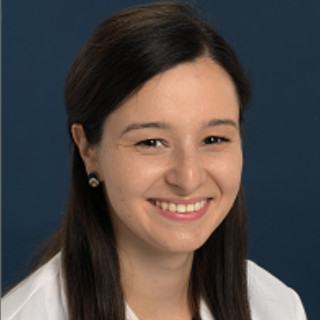I probably book more tubal ligations on our surgical schedule than the rest of my residency, combined. As a "liberal sterilizer" as my residency program director once jokingly called me, I've always believed that people should have the choice of what they want to do with their reproductive health. When I learned that not every ob/gyn practiced this way, I placed my name on a list of "childfree-friendly doctors" on the internet. Now, when I see a new patient on my schedule as "tubal - req Ackert," I know what I'm in for.
Each patient encounter always starts out the same. It’s a young woman in their 20s or 30s who is a G0, which is ob/gyn speak for “never been pregnant.” They tell me these compelling stories about how they have asked their ob/gyn for permanent sterilization for years, but have been denied on the basis of “What if you change your mind?” or, “You’re not old enough,” or “I’ll need your husband’s permission.” I listen to their stories, and tell them that I am happy to do it after they listen to my counseling. I talk about the risk of regret prior to age 30. I discuss that there are other reversible long acting methods. If they have state insurance, I have them sign a sheet that takes 30 days to mature, so the state can say that I am not forcibly sterilizing them. I explain the risks and benefits of the surgery. And then I book them. Tubals are one of my favorite surgeries to do. They are generally easy if the patient has not had many prior abdominal surgeries, quick, and satisfying. I love operating laparoscopically because I like the technology. Using a camera means you can give the patient a before and after photo, and I like seeing the direct impact of my work. It’s not always me that gets to do their tubal, but the surgery happens, and they come back to me for their post op visit, so grateful and happy that they do not have to worry about birth control anymore.
On the flip side, I, a single 28-year-old, very much want to have children one day. I think I would feel unfulfilled in my life if I didn’t. I sometimes wonder how this is going to happen if I can barely muster up the energy to go on my Hinge profile at the end of my 80-hour workweek, and feel ever so slightly jealous of my co-residents who are all in loving long-term relationships with their partners. As an ob/gyn resident, we also get training in reproductive endocrinology and infertility (REI), and at the end of my first month of my REI rotation, I sheepishly asked my attending if I could book a slot for a consult for myself.
I had listened to her do consults all month long for couples with infertility. Many of them were just like me. The story I related the most to was always one of a career-oriented woman who had spent her 20s and early 30s focusing on climbing the corporate ladder, or completing her surgical residency, or working overnight shifts to pay for school. I learned that in the general population, 1 in 8 women experience infertility, while in 1 in 4 women physicians are affected. To go even further, 1 in 3 women surgeons experience infertility. What is interesting about these statistics is that they are controlled for age, which is a big predictive factor in the fertility population. So if we compared a 35-year-old female surgeon with a 35-year-old woman not in medicine, the statistics would still hold true. So I, a female surgeon, have a 33% chance of experiencing infertility. I also learned on this rotation that my institution has great fertility benefits. So after my consult, I decided to take the plunge and undergo an oocyte cryopreservation, also known as freezing my eggs. I had a few months before my next infertility rotation to change my mind.
I did some more tubal sterilizations. I still had no desire to go on dating apps. I diagnosed fetal anomalies in “geriatric pregnancies” — also known as women who will be above 35 years old at time of delivery on my maternal fetal medicine rotation. They had to make some tough choices. My next month of REI was coming up, and I decided, what the heck. It’s not a lot of money. I’ll already be in the office for the scans and bloodwork. And 28-year-old eggs will give me a better shot at having successful and healthy pregnancies than trying the old-fashioned way later in life.
So I ordered the meds and booked my baseline transvaginal ultrasound. I learned to give myself injections in my stomach, three times a day. I learned what meds hurt to inject. I experienced how much work it is to arrange a daily ultrasound at the fertility clinic, and I was already there on rotation! I happily let the med student scan me, as I was so grateful for all the patients who let me scan them. My ovaries grew and grew to the point where my pants were tight and it was uncomfortable to make sharp movements. I had to arrange for my dad to come from a different state to drive me to and from my retrieval. I went under anesthesia, a truly lovely experience where I could not control my giggles after my CRNA pushed the Versed. I don’t remember falling asleep, but when I did, my doctor extracted 32 eggs from my ovaries. I woke up, groggily insisting that I could walk myself to the recovery room, and the med student told me that all the nurses could not stop laughing about how doctors are the worst patients.
It's funny to think of the dichotomy between these two experiences. It calls to mind the name of a prominent Reproductive Endocrinology journal, called Fertility & Sterility. Two opposite ends of the spectrum. The interesting thing about fertility and sterility is that although they are quite different, they are actually very much alike. They both sit along the same spectrum of reproductive rights and remind me of how patients of all sexes, genders, and ages have the right to do whatever they want with their reproductive health. Although I am an open person, I had to tell many more people than I was comfortable with about my personal life — that I was undergoing the egg freezing process — so I would not be penalized for missing work, similarly to how women in the early stages of their pregnancy must go to many doctor’s appointments and ultrasounds, often trying to be discreet prior to announcing their pregnancy. Perhaps some may call me crazy for freezing my eggs at such a young age, but I think I am a better doctor because of the experience I went through. As I move from my residency role into an attending role in less than two short years, I will continue to be a “liberal sterilizer” but also continue to counsel patients about their options for preserving reproductive health, and pass my passion for supporting reproductive choices along to my residents and medical students one day.
Kathleen Ackert is a resident physician in obstetrics & gynecology at St. Luke’s University Health Network. She is a graduate of the Philadelphia College of Osteopathic Medicine and Siena College. When she is not in the hospital, she can be found in coffee shops writing narrative medicine pieces or eating in restaurants that offer low-lit dining experiences. She enjoys exploring the latest fitness craze, watering her house plants, and instagramming pictures of fancy lattes at @caffeinewithkathleen. She was a 2021-2022 Doximity Op-Med Fellow, and continues as a 2022-2023 Doximity Op-Med Fellow.
Image by Tatyana Antusenok / Getty






